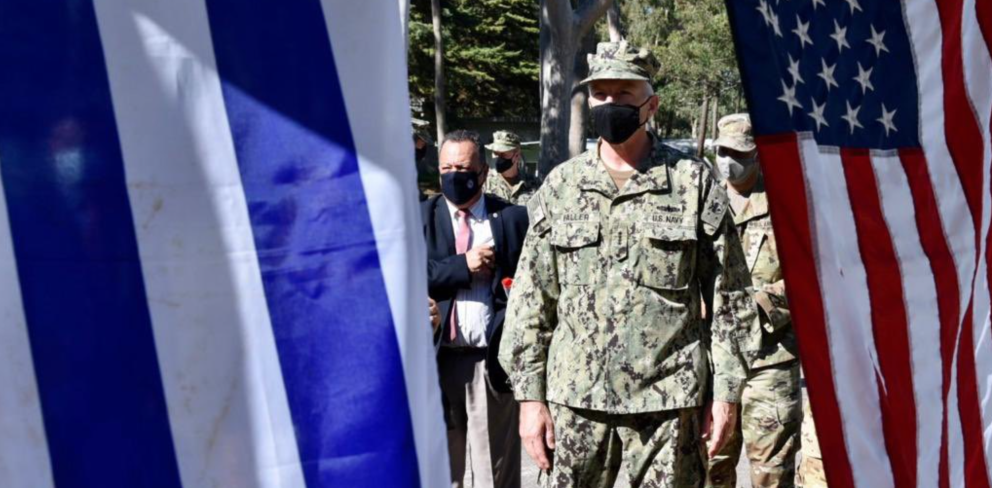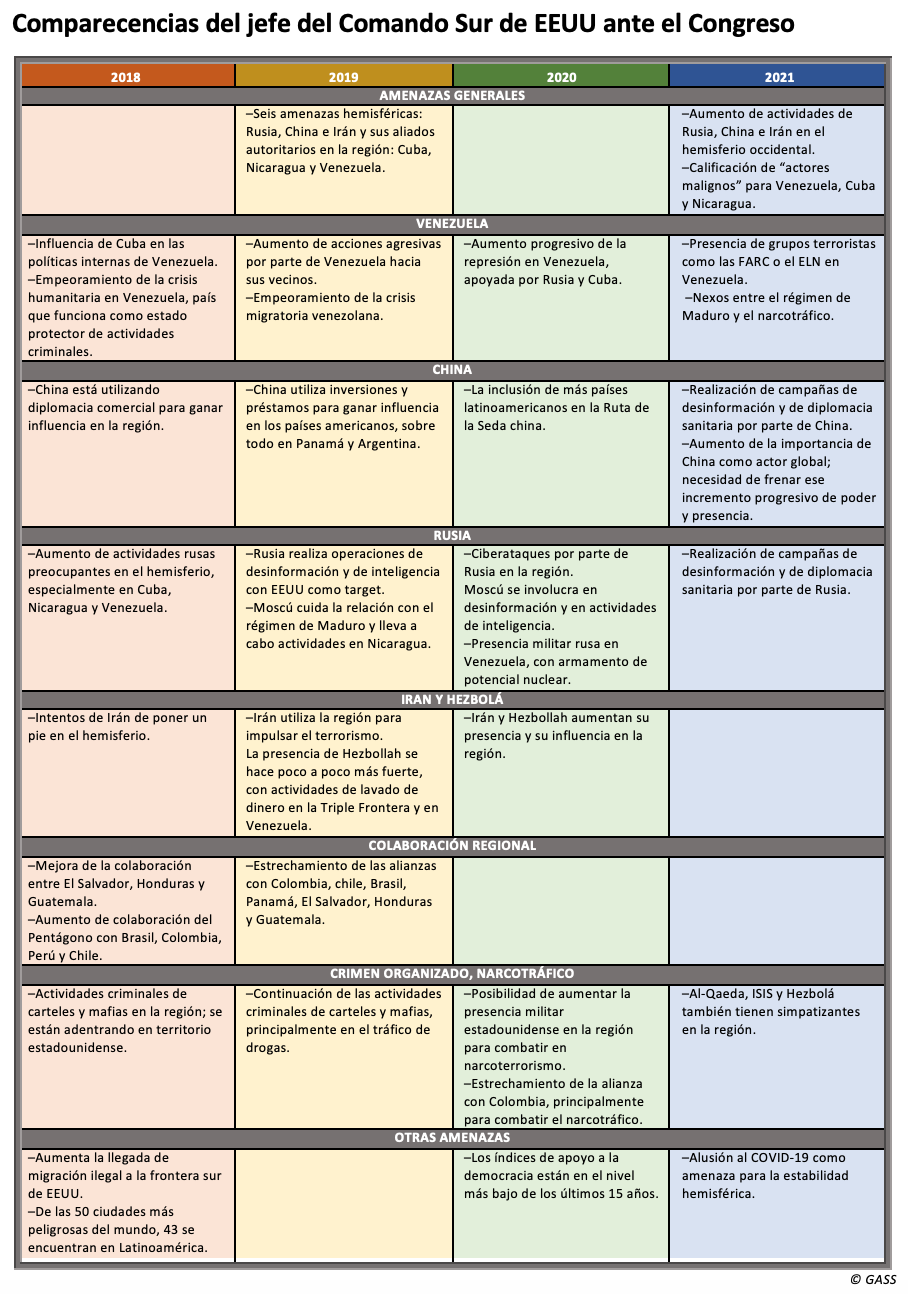USSOUTHCOM chief's appearance on Capitol Hill raises annual Degree Alert to Chinese influence and U.S. pushback
° In his last appearance, Admiral Craig Faller warned that the US "is losing its positional advantage' and called for "immediate action to reverse this trend".
° In recent years, the Southern Command speech to congress has highlighted the penetration of China, Russia and Iran, hand in hand with Cuba, Venezuela and Nicaragua.
° The analysis of the Pentagon chief's interventions in the region sample the Maduro regime's increasing involvement in criminal activities.

► visit of the head of the U.S. Southern Command to Montevideo in April 2021 [SouthCom].
report SRA 2021 / Diego Diamanti [ PDF version].
MAY 2021-The United States Southern Command -the military structure, within the US Armed Forces, which is responsible for Latin America and the Caribbean- has been progressively raising the alarm about the growing influence of Russia and above all China in the Western Hemisphere, to the detriment of the US position. This, combined with the threat coming from organized crime organizations, especially involved in drug trafficking, led the head of USSOUTHCOM, Admiral Craig Faller, to confess in March to feeling "an incredible sense of urgency": "the hemisphere in which we live is under attack", he said in his annual appearance before the US congress , dedicated to analyzing the threats and opportunities presented by the region in terms of security.
In his third "posture statement" to congress since heading Southern Command, Faller warned that the United States is losing its "edge" in the hemisphere and argued that "immediate action is needed to reverse the trend." Analyzing his 2019 and 2020 speeches, as well as the 2018 speech of his predecessor, Admiral Kurt Tidd, there is a worsening perception of the rivalry with China. Increasingly, the reference letter to the Chinese threat is more explicit and occupies more space. What was first seen as an economic influence, through increased trade and credit allocation, is now presented as more global and strategically more dangerous. According to Faller, China is seeking "to establish a global logistics and infrastructure base in our hemisphere to project and sustain military power at greater distances.
The change of Administration has not brought about any change in this worsening perception of the risks being generated in Latin America. Although Joe Biden's presidency has meant a change in the tone maintained by his predecessor, hostility towards Beijing and the desire to closely monitor other authoritarian regimes such as Russia or Venezuela remain. Hence, the "posture statement" presented this year by the head of the Southern Command is consistent with previous ones in pointing to the growing activity of Russia and China in the region (and of Iran, in coordination with Hezbollah), as well as their partnership with Cuba, Venezuela and Nicaragua, countries that Faller called "malign regional state actors".

The use of Cuba
One of the constant threats that is repeated and that is gradually increasing is the economic diplomacy strategy implemented by China in several countries of the region: how Beijing incorporates these countries into its international trade network through loans and investments, sometimes integrating them into the New Silk Road initiative. The 2018 statement did not mention the issue of Latin American nations participating in the initiative; the 2019 statement counted 16, and the 2020 statement spoke of 19, indicating a clear trend that China is gradually increasing its activities and influence in the hemisphere. The 2020 strategy also said that 25 of the 31 countries in the region have Chinese infrastructure projects, which, as the head of the Southern Command expressly points out, could be used in the future to support Chinese military interests. Added to all this is the COVID-19 crisis, which China has taken advantage of to increase its regional influence thanks to the potential of health material and vaccines.
Venezuela occupies a prominent place in the last four statements. Over the years, the situation progressively worsens and the Southern Command's stance towards the Maduro regime hardens: it goes from not calling it illegitimate to calling it illegitimate, and then openly accuses it of being involved in drug trafficking activities. It underlines its close military collaboration with Russia and with Colombian narco-terrorist groups - the ELN and FARC dissidents - which it hosts on its territory.
Another aspect that is reiterated is the emphasis on Cuba's destabilizing role: how Havana interferes in internal affairs in Venezuela and Nicaragua, instructing those oppressive regimes on how to repress opposition movements and demonstrations, sometimes sending its own agents to fulfill that repressive function. The strategy also discusses how Russia uses Cuba as a base for its intelligence operations against the United States and to project its power in the region.
The Southern Command's statements are in line with the concerns expressed in the Strategicframework for the Western Hemisphere, prepared by the National Security committee in 2020. Although the Trump Administration will have to formulate its own strategic plan for the region, no substantial changes can be expected, given that there is the same interest in restoring democracy for Nicaragua, Venezuela and Cuba; in promote transparency and fighting corruption; in combating illicit activities, such as drug and human trafficking; and in addressing the growing Chinese presence in the region.